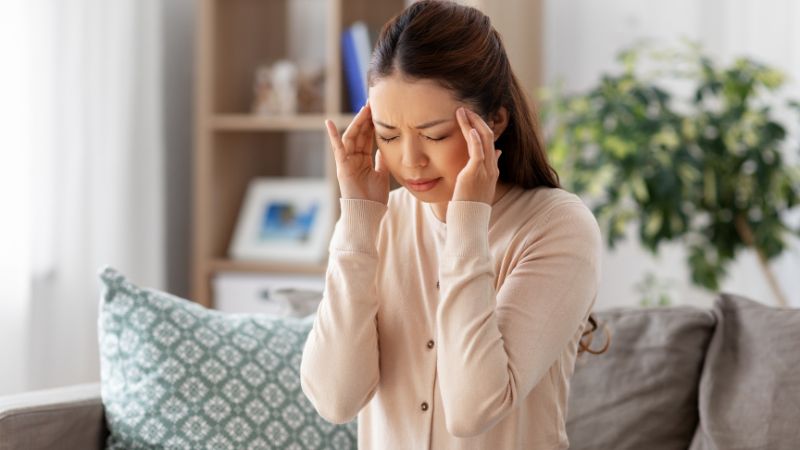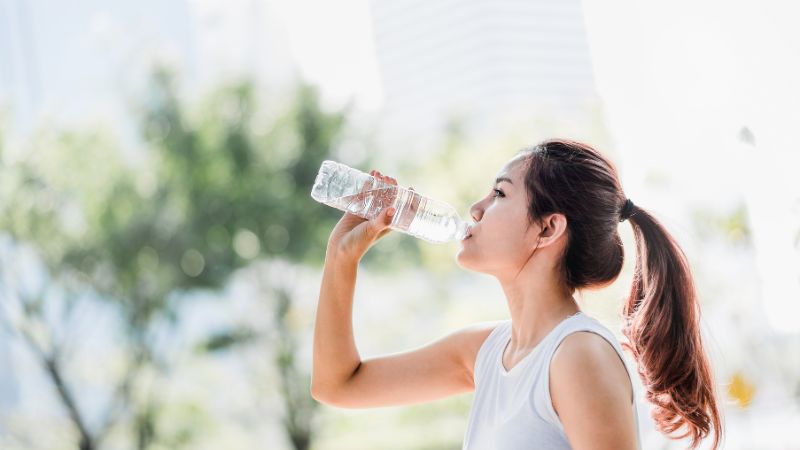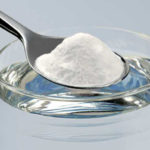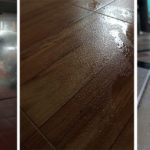Prolonged exposure to hot weather can be uncomfortable and lead to dehydration, making headaches more frequent. Drinking enough water will help you feel better and reduce the intensity of headaches.
1 Why Do Headaches Occur in Hot Weather?
Many people wonder why hot weather can trigger headaches. This is due to dehydration and electrolyte imbalances in the body caused by exposure to high temperatures.
When it’s hot, our body tries to cool down by sweating. However, if we don’t replenish our water and electrolyte intake, our body becomes dehydrated. This leads to a decrease in blood volume and electrolyte levels, resulting in reduced blood supply to the brain.
Our body’s blood vessel system then attempts to adjust by altering its flexibility. However, due to dehydration and electrolyte imbalances, these adjustments become uneven and excessive, putting pressure on the nerves and resulting in persistent headaches.
 Why Hot Weather Can Trigger Headaches
Why Hot Weather Can Trigger Headaches
2 Proper Hydration Tips to Reduce Headaches
Instead of reaching for painkillers when a headache strikes, try a simple and effective solution: drink enough water.
Adequate hydration is key to keeping your body functioning optimally during hot weather. When it’s hot, our body loses water through sweating, which can lead to headaches, fatigue, and lack of focus. Therefore, maintaining a regular water intake habit is crucial to preventing and minimizing these uncomfortable symptoms.
To develop this healthy habit, consider the following tips:
-
Set reminders on your phone: This helps you stay on track and ensure you’re drinking enough water throughout the day.
-
Break your water intake into smaller amounts: Instead of drinking a lot of water at once, spread it out into smaller portions throughout the day for better absorption.
-
Carry a water bottle with you: Always have a personal water bottle handy so you can hydrate on the go, especially when spending time outdoors.
-
The recommended daily water intake varies from 2-2.5 liters depending on age, gender, activity level, and weather conditions.
-
Timing your water intake: Drink 100-200ml of water before bedtime and after waking up to compensate for overnight fluid loss. Before exercising, drink 100-200ml of water to ensure your body is well-hydrated for optimal performance. During activity, take small sips of water to prevent sudden dehydration.
 Proper Hydration Tips to Reduce Headaches
Proper Hydration Tips to Reduce Headaches
Additionally, you can also increase your intake of fruits and vegetables to boost your water and electrolyte intake. However, if you’re sweating profusely, opt for electrolyte drinks or water with a pinch of salt to balance your body’s electrolyte levels.
Remember, proper hydration not only reduces headaches caused by hot weather but also offers numerous health benefits such as detoxification, improved metabolism, digestive support, and healthier skin. Make drinking water a daily habit to protect your health during hot weather.
3 How to Prevent Headaches in Hot Weather
Summer days can be scorching, and the intense heat can trigger annoying headaches. To protect your health, keep the following tips in mind:
Minimize direct exposure to sunlight:
-
Avoid peak hours: Stay indoors between 11 am and 4 pm when the sun is at its strongest.
-
Wear protective clothing: Opt for long-sleeved shirts, wide-brimmed hats, sunglasses, and masks to shield your skin from the sun’s harmful rays.
Stay hydrated and maintain electrolyte balance:
-
Outdoor workers: Frequently replenish water and electrolyte intake to compensate for the loss of water and minerals through sweating.
-
Recognize fatigue: When you feel tired and weak, find a cool place to rest and rehydrate.
What to Do If You Get a Headache from the Heat:
-
Rehydrate and rest: Drink plenty of cool water and take a break in a shaded area.
-
Apply a cold compress: Use a cold towel or ice pack to lower your body temperature by placing it on your forehead and temples.
-
Avoid strenuous activity: Refrain from intense physical activities until your headache subsides.
 How to Prevent Headaches in Hot Weather
How to Prevent Headaches in Hot Weather
Hot summer days can be challenging for our health, especially when it comes to dealing with headaches. Keep these simple prevention and management tips in mind to protect yourself from the negative impacts of hot weather!
Source: Sức khỏe và Đời sống Newspaper





































